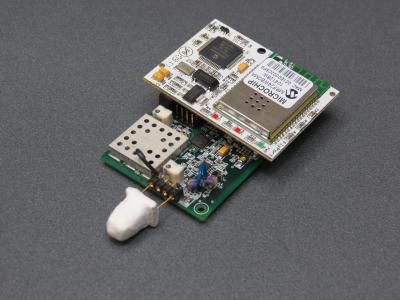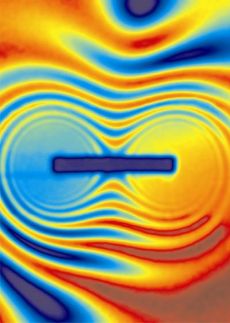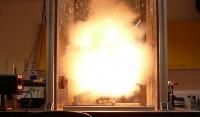Sophisticated radiation detector designed for broad public use
Advertisement
Nuclear engineers at Oregon State University have developed a small, portable and inexpensive radiation detection device that should help people all over the world better understand the radiation around them, its type and intensity, and whether or not it poses a health risk.

The technology for this new type of radiation detector developed at Oregon State University is small, inexpensive and compact.
Photo courtesy of Oregon State University
The device was developed in part due to public demand following the nuclear incident in Fukushima, Japan, in 2011, when many regional residents were unsure what level of radiation they were being exposed to and whether their homes, food, environment and drinking water were safe.
Devices that could provide that type of information were costly and not readily available to the general public, and experts realized there was a demand for improved systems that could provide convenient, accurate information at a low cost. The new system should eventually be available for less than $150.
Findings on the new technology were published in Nuclear Instruments and Methods in Physics Research. The systems are not yet available for commercial sale.
Beyond the extremely rare occasion of a radiological or nuclear incident, the new technology may also help interested consumers learn more about the world of radiation surrounding us, the constant exposure they receive everything from a concrete wall to the air we breathe, soils around us or a granite kitchen counter top and how to understand routine radiation exposure as a part of normal life.
"With a device such as this, people will be better able to understand and examine the environment in which they live," said Abi Farsoni, an associate professor of nuclear engineering in the OSU College of Engineering. "Radiation is a natural part of our lives that many people don't understand, but in some cases there's also a need to measure it accurately in case something could be a health concern. This technology will accomplish both those goals."
Of some interest, the researchers said, is that the technology being used in the new device provides measurements of radiation that are not only less expensive but also more efficient and accurate than many existing technologies that cost far more. Because of that, the system may find use not just by consumers but in laboratories and industries around the world that deal with radioactive material. This could include scientific research, medical treatments, emergency response, nuclear power plants or industrial needs.
The system is a miniaturized gamma ray spectrometer, which means it can measure not only the intensity of radiation but also identify the type of radionuclide that is creating it. Such a system is far more sophisticated than old-fashioned "Geiger counters" that provide only minimal information about the presence and level of radioactivity.




























































